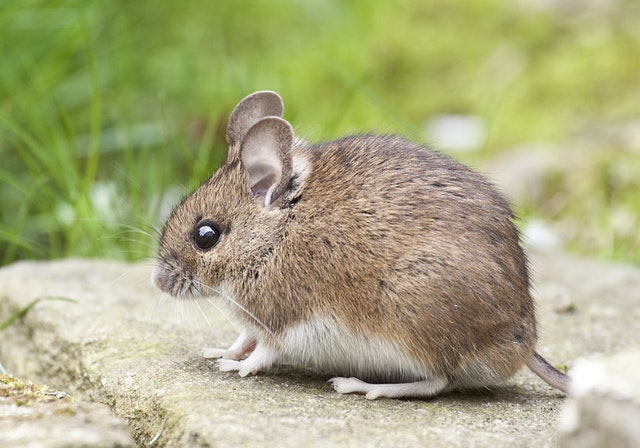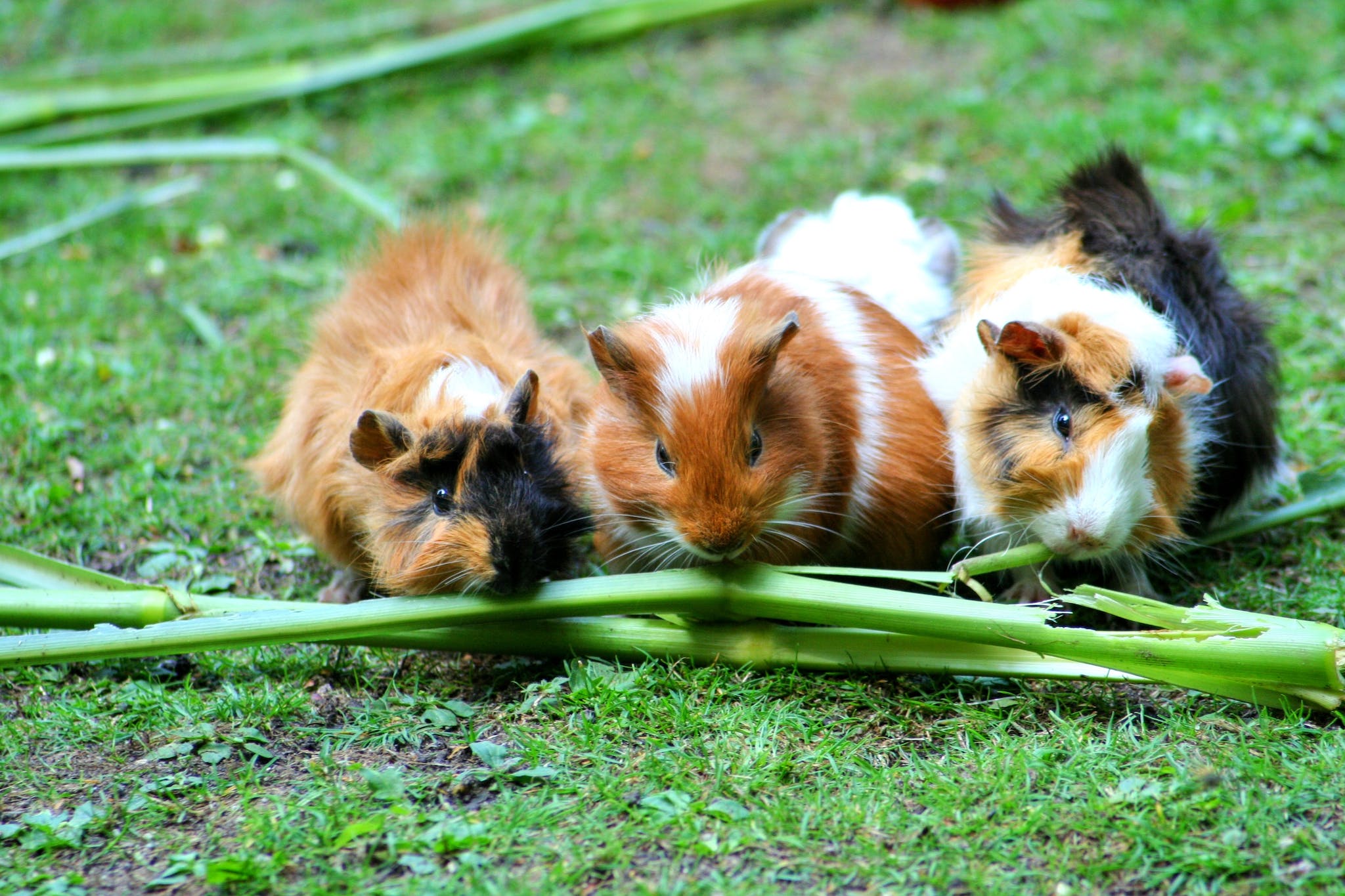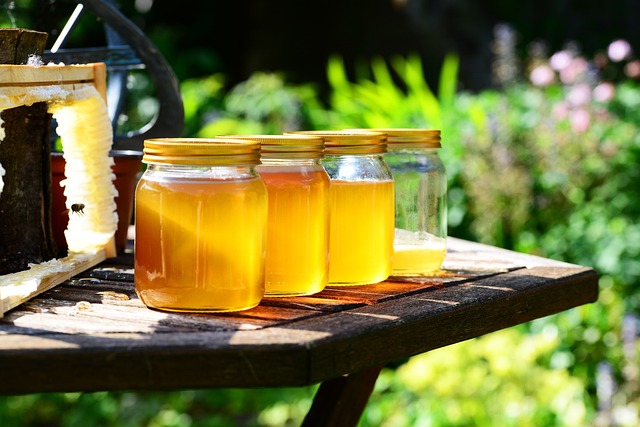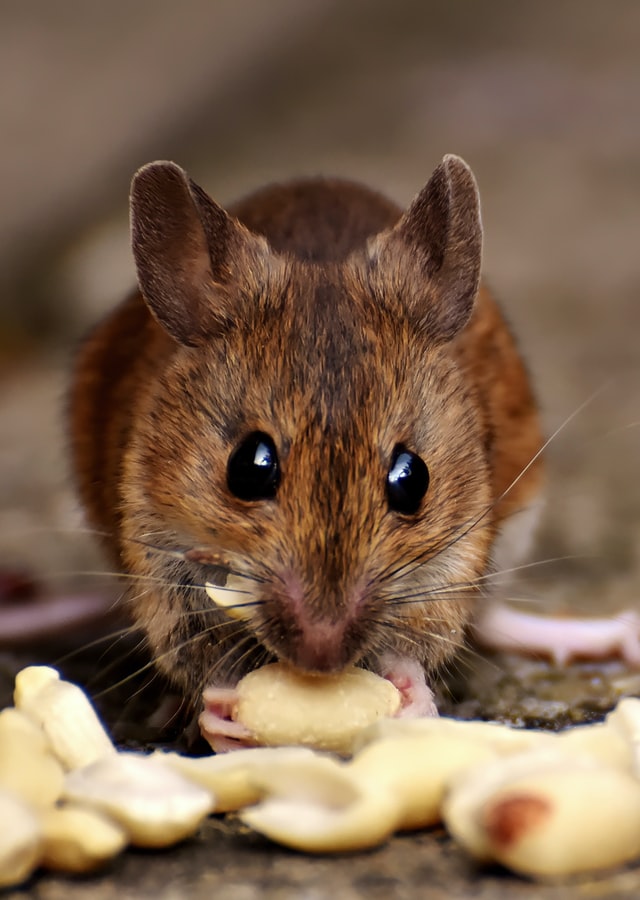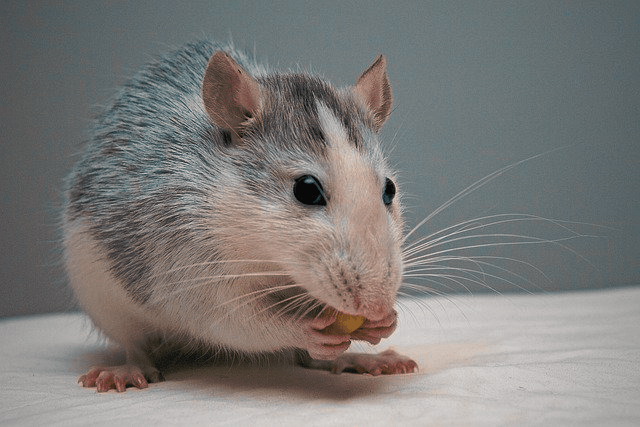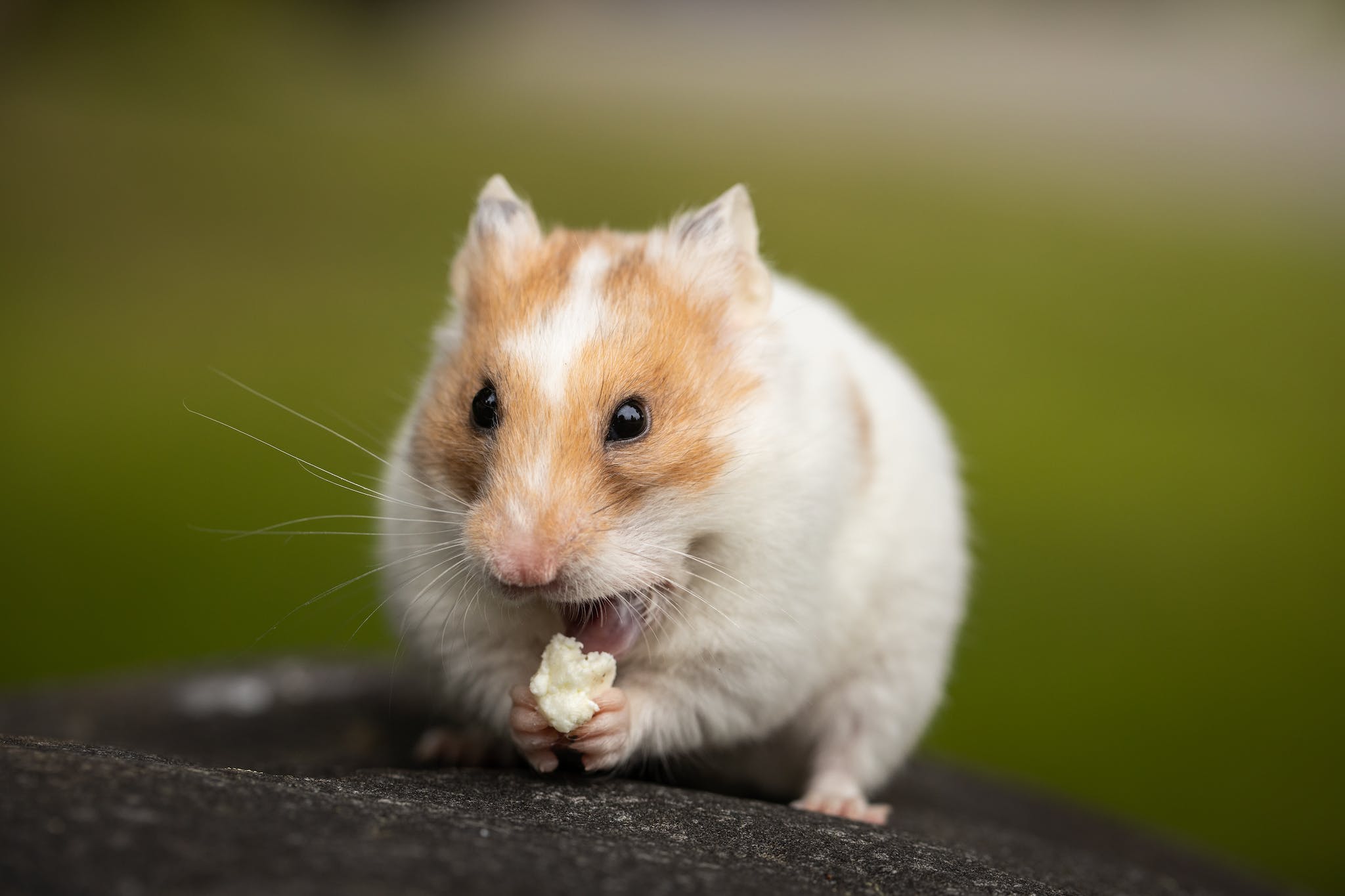Can Mice Eat Guinea Pig Food?
There are some affiliate links below, but they are all products I highly recommend. For more info, view my disclosure here.
When caring for pet mice, you want to ensure you are meeting all of their dietary needs. Some mouse owners wonder if they can simply feed guinea pig food to their mice. However, there are important differences between the nutritional requirements of mice versus guinea pigs.
We’ll take a close look at whether or not it’s safe and healthy to feed guinea pig food to pet mice. We’ll compare the nutritional makeup of foods designed for each species and discuss the potential risks and benefits of giving mice food meant for guinea pigs.
You’ll also learn about alternative food options that are better suited to a mouse’s needs. By the end, you’ll know if guinea pig food is an appropriate choice for your mouse’s diet, or if you’re better off choosing a different type of food to keep them healthy and energetic.
Nutritional Differences Between Mice and Guinea Pigs
You should know that mice can’t eat guinea pig food because it doesn’t provide them with the necessary nutrients. While it may be tempting to give your mice some guinea pig food, it is important to understand that their dietary needs are different.
Mice require a diet that is high in protein and fat, while guinea pigs need more fiber.
Mice are omnivores, which means they need a balanced diet that includes both plant and animal-based foods. Their diet should consist of a good quality mouse food that is specifically formulated to meet their nutritional needs. These foods are usually rich in protein and fat, which are essential for their growth and overall health. Feeding them guinea pig food can lead to deficiencies in these nutrients, which can have negative effects on their health.
Guinea pig food, on the other hand, is designed for the specific dietary needs of guinea pigs. It is high in fiber, which is important for their digestive health. Guinea pigs are herbivores and their diet primarily consists of hay and fresh vegetables. They also need vitamin C, as they cannot produce it on their own. Feeding guinea pig food to mice can result in an imbalance of nutrients and can lead to digestive issues and other health problems.
To ensure the optimal health of your mice, it is best to provide them with a diet that is specifically formulated for their nutritional needs. Consult with a veterinarian or a pet nutritionist to determine the best diet for your mice. Remember, a well-balanced diet is essential for their overall well-being and longevity.
Potential Health Concerns for Mice Consuming Guinea Pig Food
There could be potential health issues if you feed mice guinea pig food. While mice and guinea pigs are both small rodents, their nutritional needs differ. Guinea pig food is specifically formulated to meet the dietary requirements of guinea pigs, not mice.
One of the main concerns is the difference in protein content. Guinea pig food typically contains higher levels of protein than what mice require. Excessive protein intake can put a strain on your mouse’s kidneys and liver, potentially leading to kidney disease or liver damage. Additionally, guinea pig food often contains higher levels of calcium, which can result in urinary tract issues for mice.
Another issue is the presence of vitamin C in guinea pig food. Guinea pigs require vitamin C in their diet, as they cannot produce it themselves. However, mice can synthesize their own vitamin C and do not need additional supplementation. Feeding your mouse guinea pig food with added vitamin C can lead to an overdose, causing digestive problems or even kidney stones.
Guinea pig food may contain different additives or ingredients that are not suitable for mice. These can cause gastrointestinal upset, allergic reactions, or other health complications.
To ensure the well-being of your mouse, it is essential to provide them with a balanced and appropriate diet. Opt for a commercial mouse food specifically formulated to meet their nutritional needs. This will help prevent potential health issues and ensure your mouse remains healthy and happy.
Comparison of Dietary Needs for Mice and Guinea Pigs
When considering the dietary needs of mice and guinea pigs, it’s important to understand that their nutritional requirements differ. While both animals are herbivores and need a diet rich in fiber, there are some distinct differences in the types of food they should consume.
For mice, a balanced diet is essential to maintain their health and well-being. They require a combination of grains, seeds, fruits, and vegetables. Mice also need a good amount of protein in their diet, which can be obtained from sources like lean meats, eggs, and legumes. It’s important to note that mice are prone to obesity, so it’s crucial to monitor their portion sizes and avoid overfeeding them.
On the other hand, guinea pigs have unique dietary needs. They require a diet that is high in vitamin C, as they are unable to produce this essential nutrient on their own. Fresh fruits and vegetables like oranges, bell peppers, and kale are excellent sources of vitamin C for guinea pigs. Additionally, guinea pigs need a constant supply of hay to maintain good digestive health. Hay provides the necessary fiber for their diet and helps to wear down their continuously growing teeth.
While it might be tempting to feed guinea pig food to mice or vice versa, it’s not recommended. The nutritional needs of each animal are specific to their species, and providing the wrong type of food can lead to nutritional deficiencies or health issues.
Feeding Guinea Pig Food to Mice: Risks and Benefits
Feeding guinea pig food to mice can lead to nutritional deficiencies or health issues due to their specific dietary needs. While it may be tempting to give your mice a taste of the guinea pig food you already have on hand, it’s important to understand that mice and guinea pigs have different nutritional requirements.
Mice are omnivores and have specific dietary needs that must be met in order for them to thrive. They require a diet that is high in protein, fat, and carbohydrates, with a good balance of vitamins and minerals. On the other hand, guinea pigs are herbivores and require a diet that is primarily made up of hay, fresh vegetables, and pellets specifically formulated for them. Guinea pig food is typically lower in protein and higher in fiber than what mice need.
If you were to feed your mice guinea pig food on a regular basis, they would not be getting the proper nutrition that their bodies require. This can lead to nutritional deficiencies, such as a lack of essential vitamins and minerals. Additionally, guinea pig food may be too high in fiber for mice, which can cause digestive issues and lead to diarrhea or constipation.
It’s important to provide your mice with a diet that is specifically designed for their needs. This means feeding them a balanced diet that includes a good quality mouse food, supplemented with fresh fruits, vegetables, and occasional treats. By providing your mice with the proper nutrition, you can ensure that they stay healthy and happy.
Alternatives to Guinea Pig Food for Mice’s Nutritional Needs
To meet the nutritional needs of your mice, there are alternative options available besides guinea pig food. While guinea pig food may seem like a convenient choice, it may not provide all the necessary nutrients that mice require.
Luckily, there are several alternatives that you can consider to ensure your little furry friends stay healthy and happy.
One option is to feed your mice a high-quality commercial mouse food. Look for a brand that is specifically formulated for mice and provides a balanced diet. These foods are typically made with a mixture of grains, seeds, and pellets, ensuring that your mice get the right combination of carbohydrates, proteins, and fats. You can easily find these foods at pet stores or online.
Another alternative is to create a homemade diet for your mice. This involves combining a variety of fresh fruits, vegetables, and grains to provide a well-rounded meal. Some suitable options include leafy greens like spinach and kale, as well as fruits like apples and berries. Make sure to research which foods are safe for mice to eat, as some may be harmful to their health.
In addition to their main diet, it’s important to provide your mice with fresh water at all times. You can use a water bottle with a sipper tube to ensure easy access for your mice. Avoid using bowls, as they can become easily contaminated.
Remember, mice have specific nutritional requirements, so it’s essential to provide them with a diet that meets their needs. By exploring alternative options to guinea pig food, you can ensure that your mice receive a well-balanced and nutritious diet.
